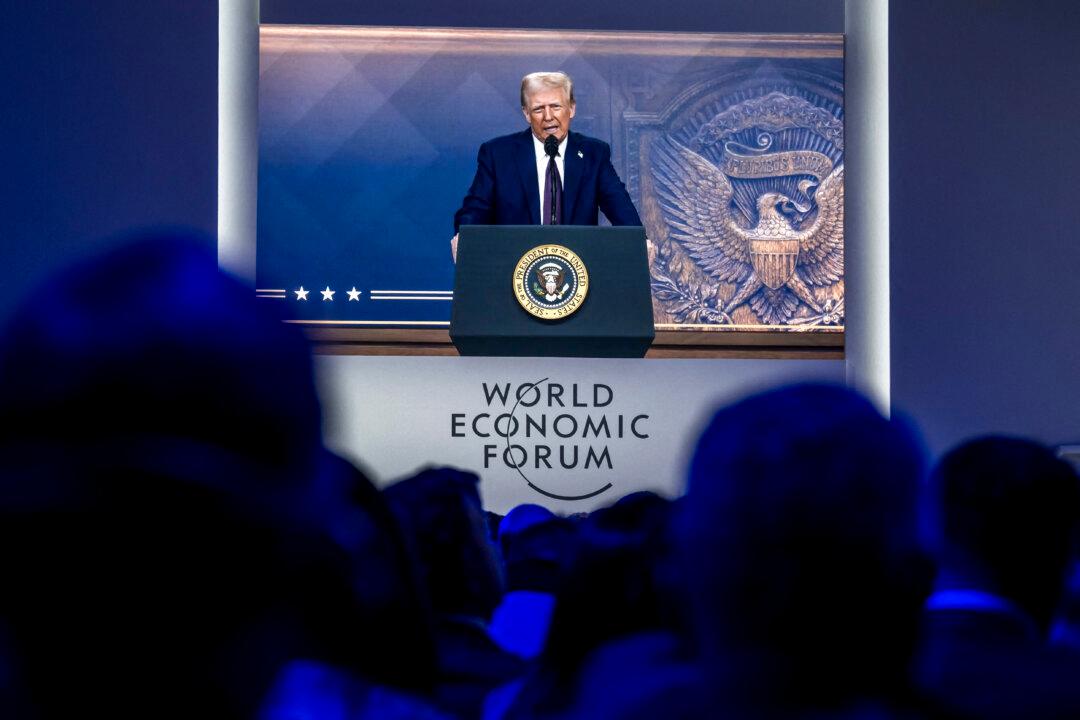America can do fine without Canadian oil and lumber, U.S. President Donald Trump told an audience at the World Economic Forum (WEF) in Davos.
“We don’t need their oil and gas. We have more than anybody,” Trump said during his virtual participation in a forum session on Jan. 23, during which he delivered a speech and took questions from top international banking, finance, and oil industry CEOs.





